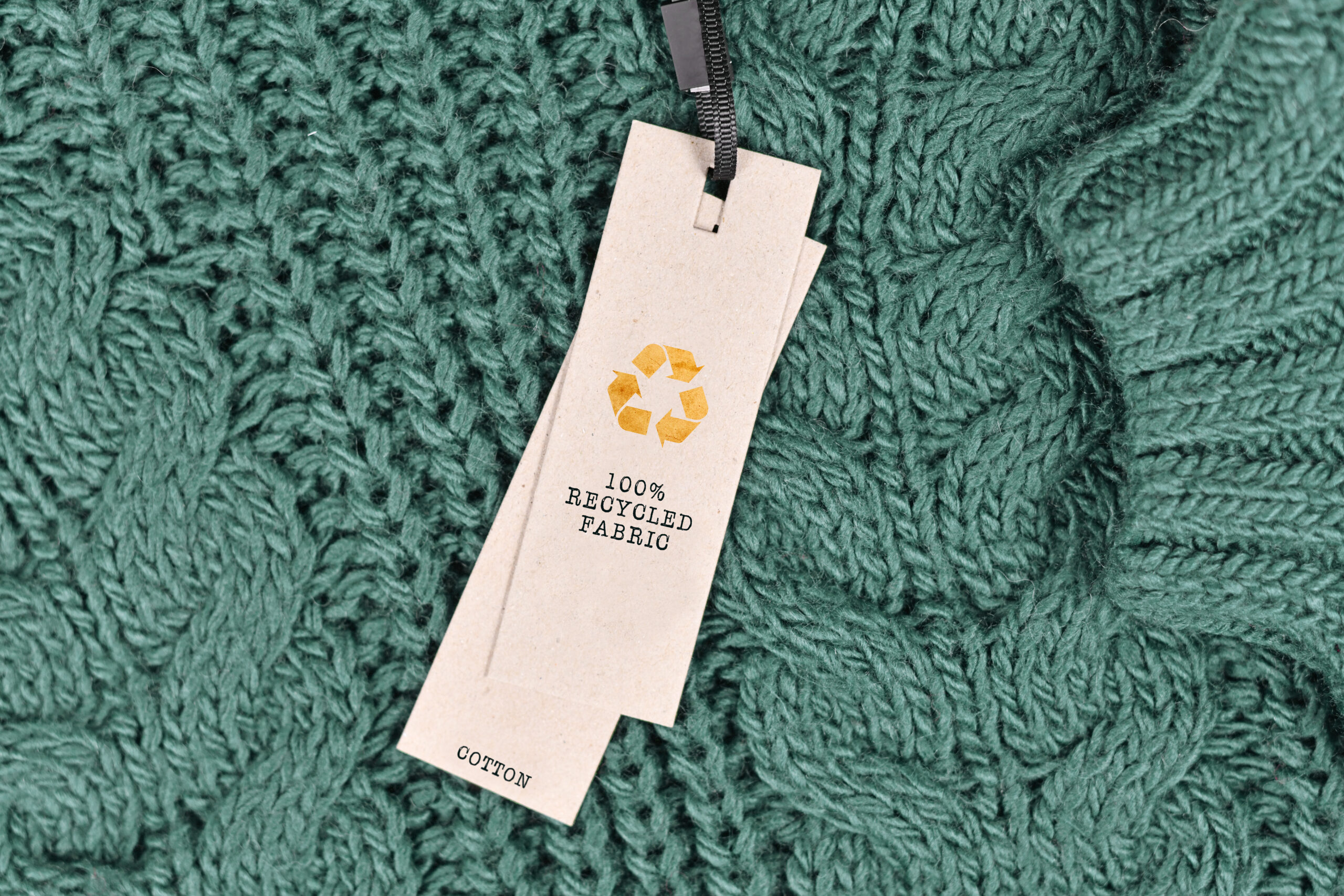Keep Ahead of the Curve by Checking Out Innovative Fashion Trends
In a market as dynamic as style, staying ahead entails greater than just following current fads-- it demands an expedition of innovation. Smart textiles, for instance, are changing garments right into useful work of arts, while 3D printing is reinventing design processes with its customizable, waste-reducing capabilities. As sustainability comes to be a foundation, innovations like environmentally friendly materials and circular style techniques are reshaping ecological duty - Cape Town Sustainable Fashion. Additionally, the convergence of modern technology and fashion advertises a new era of consumer engagement. How, after that, can these arising trends redefine the future of fashion, and what ramifications do they hold for brand names seeking to grow in this evolving landscape?

Accepting Smart Textiles
Over the last few years, the fashion business has observed a transformative shift with the assimilation of clever textiles, a cutting-edge advancement that blends modern technology with fabric. This development stands for not only a combination of aesthetics and performance yet additionally a considerable leap in the direction of sustainability and personalization in style. Smart textiles, additionally called e-textiles, embed sophisticated electronics such as sensors and conductive threads within the material, allowing garments to connect with the user or the atmosphere.
These fabrics are made to monitor physiological specifications, such as heart rate or body temperature, providing real-time health and wellness analytics. Beyond health and wellness applications, smart textiles are likewise being made use of for adaptive apparel, which can change shade or pattern in action to ecological stimuli, hence providing a dynamic style experience.
Moreover, the development of energy-harvesting textiles that generate power from activity or sunshine is leading the way for self-dependent wearable technology. This technology is appealing to eco aware consumers and developers intending to lower the ecological footprint of fashion. As study and growth in this field advance, clever textiles are anticipated to become progressively prevalent, improving the landscape of modern style with their multifunctional capabilities.
The Increase of 3D Printing
Reinventing the manufacturing landscape, 3D printing has emerged as a game-changer in the fashion business. This cutting-edge innovation has enabled developers to push the borders of creative thinking, creating complex and tailored garments that were formerly inconceivable. By leveraging digital layout and additive production, 3D printing assists in the production of complex geometries and patterns, allowing developers to explore brand-new appearances and frameworks.
A notable advantage of 3D printing in vogue is its capability to produce on-demand, reducing waste and minimizing inventory needs. This effectiveness not only maximizes production procedures but likewise permits fast prototyping, allowing developers to bring their visions to life in a shorter duration. Furthermore, 3D printing supports personalization somewhat unparalleled by traditional techniques, providing personalized fits and unique styles tailored to private customer preferences.
The surge of 3D printing has likewise equalized fashion, making it accessible to arising designers who can now produce premium items without significant financial investment in standard manufacturing facilities. As technology continues to development, the style industry is poised to harness the complete potential of 3D printing, exploring new materials and techniques that will unquestionably redefine exactly how fashion is developed and created.
Lasting Style Advancements
As the style industry grapples with journalism need for environmental duty, lasting fashion developments have actually arised at the forefront of transformative change. The growing understanding of eco-friendly impact has actually fueled a shift towards even more eco-conscious practices and products. Developers and brand names are now focusing on sustainability, including techniques that lessen waste and minimize carbon impacts.
One considerable advancement is the rise of circular fashion, which stresses recycling and upcycling to extend the lifecycle of garments. This strategy not just minimizes waste however additionally motivates consumers to take on an extra mindful method to clothing consumption.
An additional advancement hinges on the fostering of ingenious dyeing strategies that use all-natural dyes or waterless processes, therefore decreasing the large amounts of water and chemicals commonly anonymous utilized in textile dyeing. Furthermore, advancements in biotechnology have caused the creation of lab-grown natural leather and textiles, offering ecologically friendly and cruelty-free alternatives to standard materials. With these pioneering initiatives, the garment industry is making significant strides towards an extra lasting future.

Tech-Integrated Garments
Tech-integrated apparel represents a revolutionary fusion of style and innovation, reshaping exactly how people connect with their clothes. This cutting-edge domain name is noted by the addition of wise textiles and ingrained digital components, enhancing both performance and aesthetic allure. From fitness trackers installed in sportswear to warmed jackets managed via mobile phone apps, tech-integrated clothing offers customers extraordinary comfort and versatility.
Introducing brands are driving this pattern, concentrating on creating garments that reply to ecological stimuli or customer commands. For circumstances, some garments can alter shade or pattern in response to temperature level changes, while others incorporate biometric sensors to keep an eye on health metrics like heart price or stress degrees. The seamless integration of innovation into fabrics also extends to ecological sustainability, with initiatives to create self-cleaning materials or garments that get used to weather problems, hence lessening the need for multiple layers.
Moreover, the introduction of wearable innovation is not just restricted to clothing however reaches accessories like watches and eyewear, additional expanding the extent of tech-integrated style. As the market proceeds to introduce, the possibility for modification and personalization in apparel grows, providing customers special, tech-enhanced fashion experiences that deal with their specific needs and preferences.
Future of Virtual Style
In current years, the future of digital fashion has actually emerged as a transformative force within the industry, leveraging innovations in electronic innovation to redefine just how fashion is developed, experienced, and consumed. By integrating increased fact (AR), virtual truth (VIRTUAL REALITY), and 3D style devices, developers can now craft interactive and immersive experiences that go beyond typical style limits. Digital fashion enables the development of garments that exist only in electronic environments, providing endless opportunities for innovation without the constraints of physical production.
This electronic shift not just presents chances for imaginative expression but also addresses sustainability problems inherent in standard fashion practices. Cape Town Sustainable Fashion. By eliminating the requirement for physical resources, digital fashion reduces waste and reduces carbon impacts. Furthermore, the rise of virtual fashion straightens with the increasing consumer need for tailored and unique experiences, as online garments can be tailored and customized to private preferences with simplicity

Conclusion
The style industry's future lies in the assimilation of cutting-edge innovations and sustainable methods. Online view it style is positioned to redefine customer communications.
In current years, the fashion industry has witnessed a transformative shift with the integration of smart textiles, an advanced technology that mixes innovation with material.As the fashion sector grapples with the pushing need for ecological responsibility, sustainable style advancements have actually arised at the leading edge of transformative adjustment.In recent years, the future of virtual style has arised as a transformative pressure within the industry, leveraging advancements in digital technology to redefine just how style is developed, experienced, and consumed. The increase of virtual style straightens with the raising consumer demand for customized and special experiences, as online garments can be customized and tailored to specific choices with simplicity.
The fashion market's future lies in the integration of sustainable methods and ingenious modern technologies.